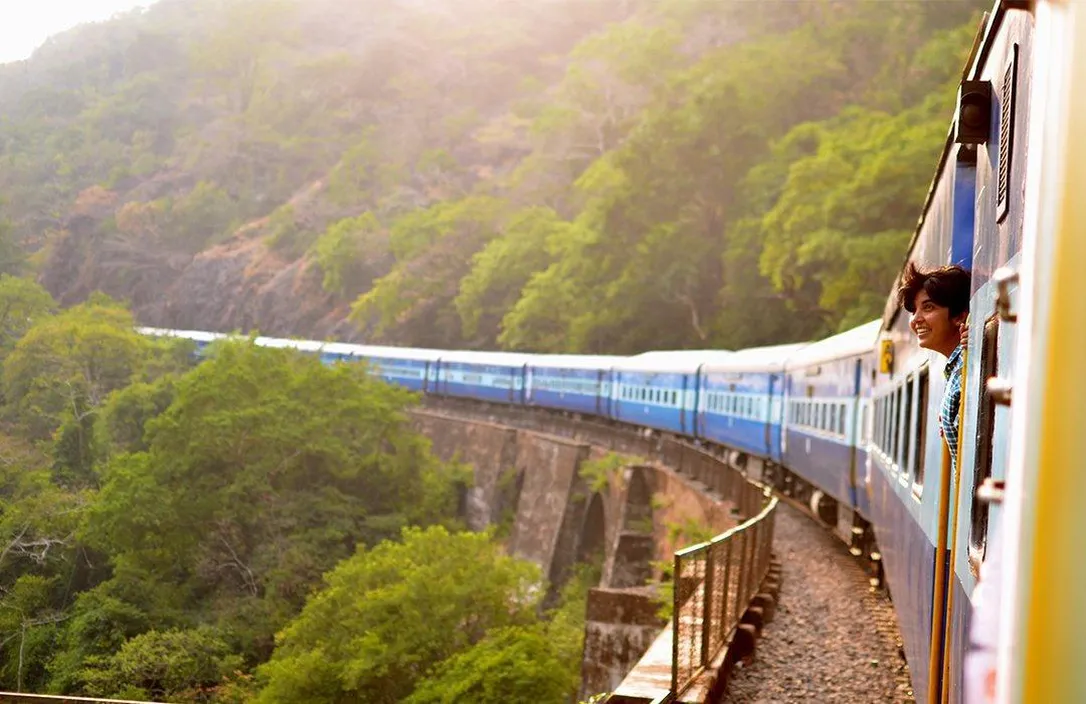[ad_1]
By now, most of us know journey comes with environmental prices. When you’ve resolved to see the world in a extra conscientious approach, take your cues from the specialists: Right here’s how three sustainable journey authors intend to tread extra frivolously going ahead.
Helen Coffey, creator of “Zero Altitude: How I Learned to Fly Less and Travel More” (Flint, Could 2022)
In November 2019, Helen Coffey, journey editor of the U.Okay. newspaper The Unbiased, boarded her final flight. Since then, every January, together with this one, Coffey has taken the Flight Free UK pledge, opting out of all airplane journeys in favour of ferries and trains, like Eurostar routes to Europe. Sadly, Canadians don’t have a equally sprawling rail community for reaching plenty of different international locations, so if you happen to do must fly, Coffey has solutions for how you can scale back the impression.
“A great first step is to not see long-haul flying as a necessity for each trip and to focus extra on short-haul locations. There are such a lot of superb locations to discover inside our personal international locations that we regularly overlook as a result of now we have this huge journey ecosystem, the place you are taking a package deal vacation and get on a airplane,” Coffey says. “Mentioning a map of locations which are inside a few hours’ journey, and narrowing down your decisions will be actually inspiring.”
We are able to additionally shift our planning away from taking plenty of brief holidays annually to 1 or two longer journeys. “Once you spend extra time at a vacation spot, you’re spending extra money whereas there, which is how tourism acts as a drive for good in lots of locations,” Coffey says. “And also you’re in all probability not simply going to essentially the most touristy and overpopulated areas, so it’s good for you as a traveller.”
Rachel Dodds, PhD, co-author of “Are We There Yet?: Travelling More Responsibly with Your Children” (BookBaby, Aug. 2022)
As a tourism professor at Toronto Metropolitan College specializing in sustainable journey, Rachel Dodds is aware of nicely the impression of air journey. She’s resolved to take the next steps each time she flies solo or together with her daughter to assist mitigate the carbon emissions.
“Primary, we fly direct as that makes an enormous distinction. We solely fly with carry-on baggage, because the heavier a airplane is, the upper the carbon footprint — we’re even doing this for an upcoming month in Vietnam. We journey for longer to make every journey rely,” Dodds says. Earlier than reserving, she additionally all the time compares the CO2 emissions listed per flight on web sites like Google Flights and Skyscanner, each of which determine routes which have lower-than-typical carbon emissions.
Dodds has combined emotions about carbon offsetting as she feels it’s a little bit of a “get-out-of-jail-free card,” so will as an alternative donate to an area charity or group wherever she is headed. “Usually this will probably be an area environmental group, however generally I go for academic charities,” Dodds explains.
Sarah Reid, creator of “The Sustainable Travel Handbook” (Lonely Planet, Nov. 2020)
Australian journey author Sarah Reid has a graduate certificates in sustainable journey and sees greenwashing as a serious barrier for travellers making an attempt to take extra sustainable journeys. This 12 months, Reid has dedicated to trying extra deeply at each journey she takes.
“Many firms make large claims about what they’re doing to be extra sustainable, however plenty of this stuff won’t carry an enormous quantity of weight,” Reid explains. “For instance, it’s implausible that a big resort chain may scale back single-use plastics, but when they’re constructing an enormous new resort in a neighborhood yearly, that’s doubtlessly doing extra injury to the atmosphere.” She provides that firms sticking the “eco” label on something pure as an alternative of truly sustainable is a private bugbear.
Reid advises following what tour operators resembling Intrepid, a licensed B Corp, are doing. B Corp is a non-profit, and this certification means an organization has gone by way of a rigorous evaluation of its social and environmental impression; you may search bcorporation.net to seek out journey companies which have achieved this excessive commonplace.
“A majority of these operators are working straight with communities and implementing methods to decarbonize,” says Reid, “whether or not they’re utilizing e-bikes on their excursions or different, extra environment friendly transport, and shifting away from carbon-intensive sources.”
JOIN THE CONVERSATION
[ad_2]
Source link


Recent Comments